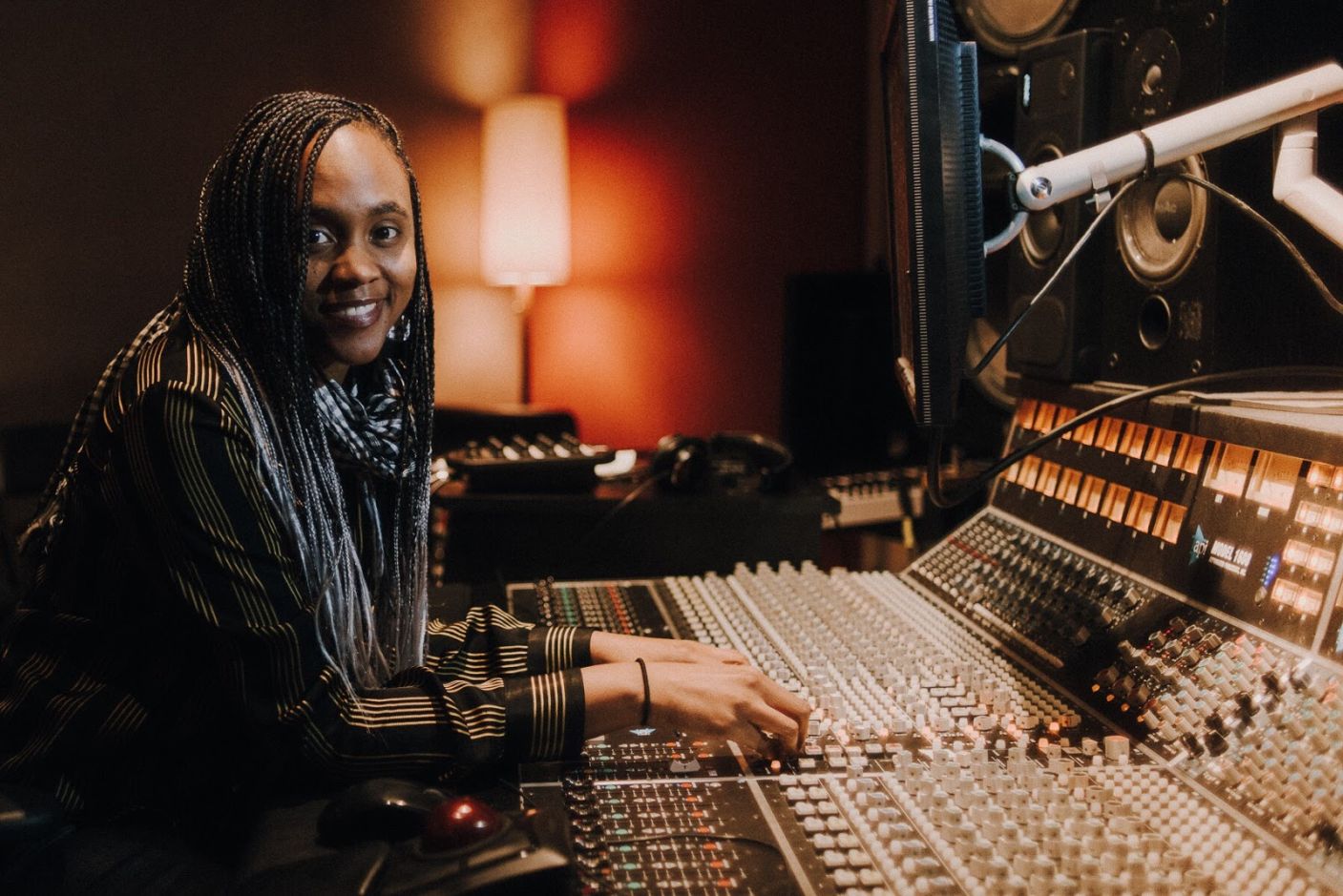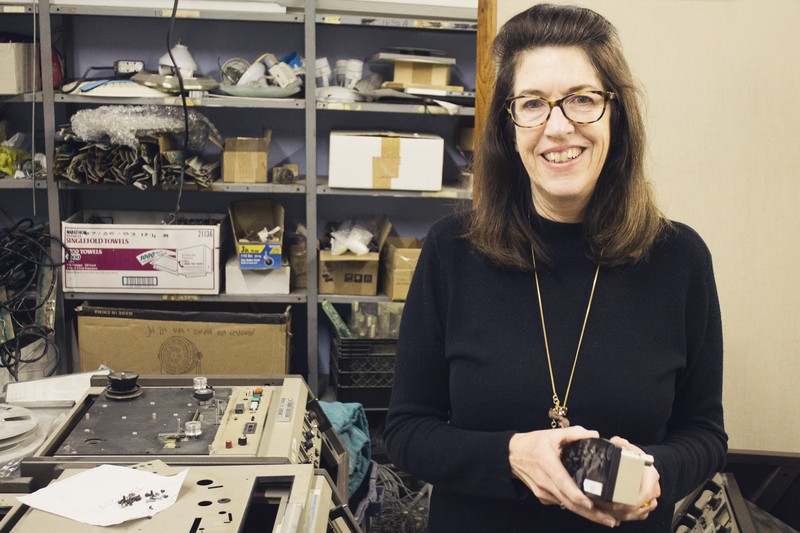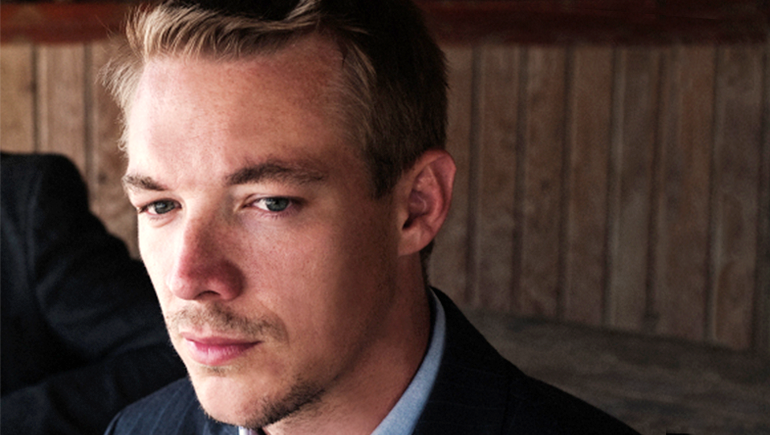
Atlantic Records' Recording Engineer, Ebonie Smith, Talks Amplifying the Music Industry
We sat down with Atlantic Records’ in-house audio engineer Ebonie Smith to chat about her craft, the music industry, and her work with Gender Amplified.
Every label worth their salt has an accomplished in-house audio engineer, and if they’re lucky, they land someone as talented as Ebonie Smith at Atlantic Records. But her work doesn’t stop when she leaves the studio—Ebonie founded Gender Amplified, a non-profit dedicated to empowering women and non-binary producers in music. Between her work to advance the role of women in music production, and her experience as a major label’s in-house engineer, she has collected valuable insights on how to navigate through the music industry. We sat down with her to chat about her work and workflow, the industry, and the latest from Gender Amplified.
DG: What's a normal day look like for you work-wise? How much time is actively at the board and how much is spent on other aspects of the business?
ES: There is no "normal" day. However, each day always involves audio and music. On average, I arrive to the studio at 10:30 AM and start mixing or recording artists. Every day I am in the recording studio; that's my home. I average 10 hours in the studio a day, five to six days a week. I do spend a lot of time handling business. However, technology makes it possible for me to send emails from anywhere.
DG: As someone who spends 10 hours a day in the studio, do you think there are any small things you struggle with that most people take for granted?
ES: Ear fatigue can be a challenge after a while. It is very important to protect the ears and monitor at moderate levels. However, the challenge is wanting the music to knock hard. It can be hard to be disciplined.
DG: How do you think your job is different than the average producer/engineer (i.e. one not affiliated with a label)?
ES: I have the full support of a label to develop artists and build creative projects. I have a wealth of executive advisement around me roaming the halls each day. In this way, I have gained great mentors. I learn and absorb the changes in the industry in real-time. I am working directly with the people who are brokering all the important deals, and making the records that will go on to be "Album of the Year," "Record of the Year," or "Song of the Year," at the Grammys. It's the best education.
DG: Any advice for how people starting out (without that kind of mentor access) can get educated?
ES: The first thing is making sure your craft is perfected. Make music every single day! At least 30 minutes a day. Secondly, it is important to understand the ways music gets to top artists.
Here are a few:
- A&R at labels
- Music publishers at publishing companies
- Representatives at performance rights organizations (PROs)
- Social media (YouTube, Soundcloud, Beatport, Mixcloud, Bandcamp, Spotify/DSPs, etc.)
- Through artist management
These are a few of the ways songs and tracks make their way to artists, and then to fans. If you don’t know what some of these terms above mean, start looking them up to understand them better. This is the business and research part of it that most folks starting out aren’t going to do. Making sure you understand the business will set you apart.
After you do your research, start networking. Go meet these publishers, managers, PRO reps, etc. Your network is how you get songs placed.
DG: Have you ever been surprised by common threads (sonically/production-wise) in hit songs across different genres?
ES: I have not been surprised. All great records start with a great song. Whether it's Lil Nas X, Ed Sheeran, or Billie Eilish, songs win. It doesn't matter the genre. If the song has merit, the record has a chance of having success.
DG: That’s the best advice. I think it’s always been that way too. Do you believe that there’s a “most fundamentally important” aspect to a great song?
ES: Great songs use powerful melodies and lyrics to translate and encapsulate the human experience for listeners. That's the fundamental.
DG: Are there any Gender Amplified events/news you can share?
ES: Gender Amplified has had a landmark year. We produced a music production camp series called The Ctrl Room in partnership with Atlantic Records, and the Clive Davis Institute of Recorded Music. During these daylong camps, we brought together top artists, aspiring student musicians, and established music producers from the Gender Amplified community. Prominent artists who took part include Elle Varner, Spencer Ludwig, and Coco & Breezy. The flagship program has been renewed by NYU and will rev up again in fall 2019!

